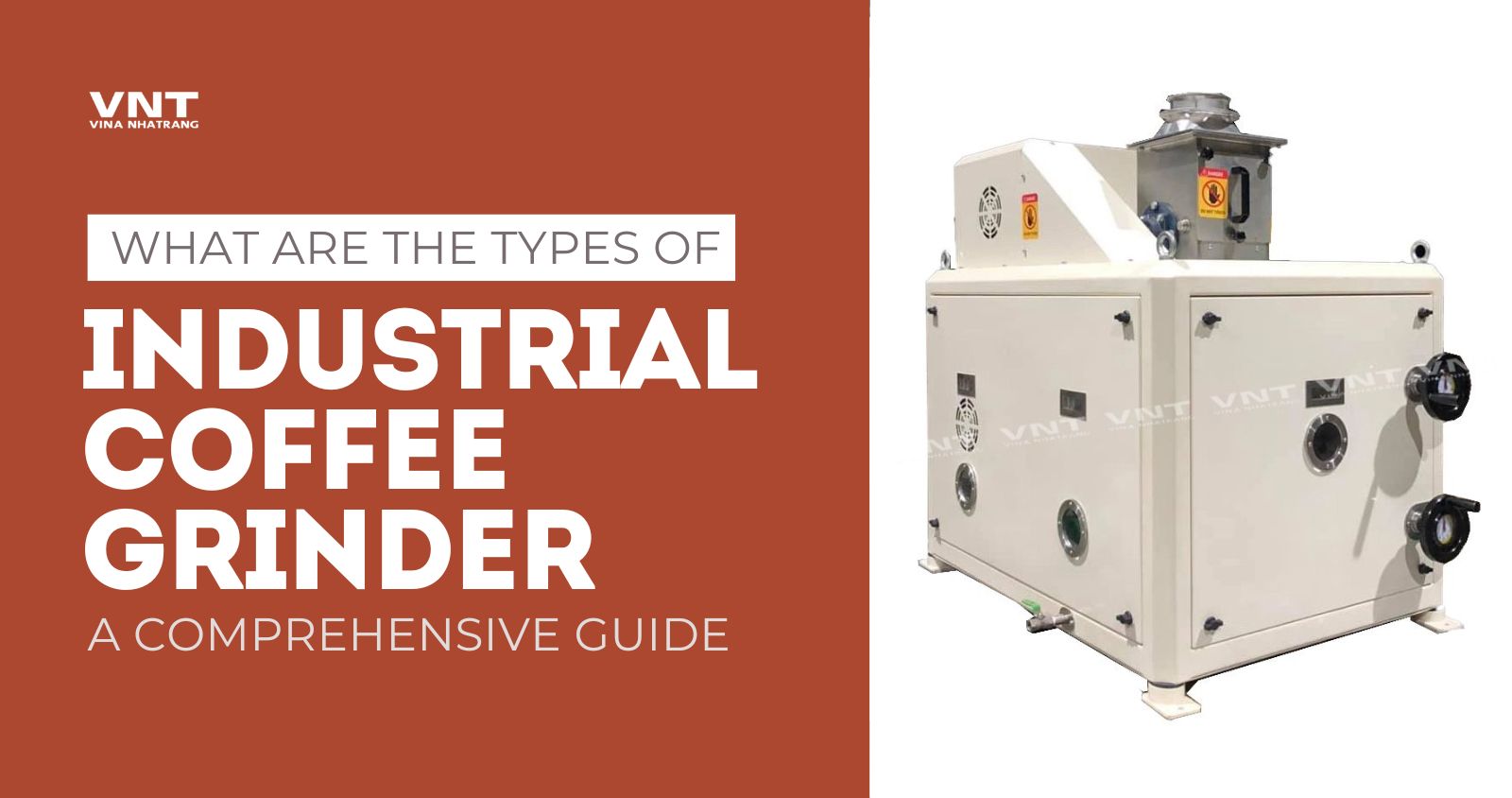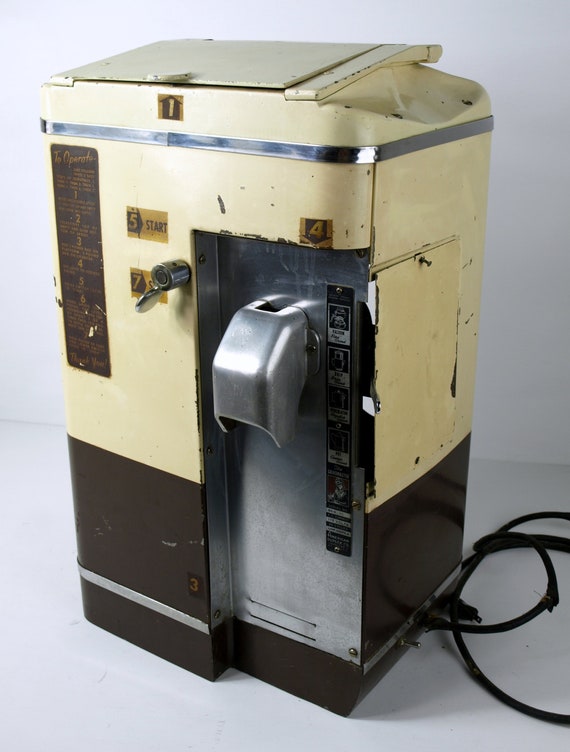Maximize Efficiency with an Industrial Coffee Grinder in Your Establishment
Wiki Article
Just How to Pick the Perfect Industrial Coffee Mill for Your Organization
Picking the excellent commercial coffee grinder for your service is a diverse choice that requires mindful consideration of several essential variables. Additionally, recognizing the numerous types of mills available can substantially influence your functional performance.Assess Your Grinding Needs
When selecting an industrial coffee grinder, one need to initially analyze their grinding needs to guarantee ideal performance and uniformity. This preliminary analysis entails understanding the volume of coffee to be processed daily, as well as the desired grind size for various brewing methods. A high-capacity grinder may be needed for services offering huge amounts of coffee, while smaller operations might find a much more small design adequate.In addition, it is necessary to take into consideration the sorts of coffee beans being used, as different beans might need specific grinding methods to attain the ideal flavor account. As an example, oily beans could require a grinder made to take care of such attributes without overheating or clumping.
Specialized coffee companies usually demand accurate work dimensions to enhance extraction and taste, making it essential to choose a grinder that can provide consistent outcomes. Evaluating the available area and electric needs will certainly help in selecting a grinder that fits effortlessly into your functional workflow.
Understand Mill Types
Understanding the various kinds of commercial coffee mills is important for making an informed option that meets specific operational demands. There are mostly 2 groups of mills: blade mills and burr mills.Blade mills make use of rotating blades to cut the coffee beans, causing an irregular work dimension - Industrial Coffee Grinder. While they might be more budget friendly, they are frequently not suitable for commercial applications where precision is important
On the other hand, burr grinders provide a more uniform grind by squashing the beans in between 2 surfaces. They can be more categorized into flat burr and conelike burr grinders. Flat burr mills offer a regular work dimension and are typically preferred for espresso prep work, while cone-shaped burr grinders are versatile and can take care of a variety of brew methods, from espresso to French press.
When picking a grinder, take into consideration the details requirements of your business, including preferred grind consistency, production volume, and the sorts of coffee beverages you prepare to use - Industrial Coffee Grinder. Each grinder kind has its benefits and constraints, so understanding these subtleties enables informed decision-making that lines up with functional goals
Evaluate Work Size Consistency
Achieving grind dimension consistency is essential for producing top notch coffee, as variants in fragment dimension can substantially impact removal and flavor. When choosing an industrial coffee grinder, it is critical to evaluate just how well the maker preserves uniformity in work dimension across various sets. Irregular work dimensions can bring about irregular removal, leading to a mug that might taste weak or overly bitter.To evaluate work size consistency, consider grinders with attributes such as adjustable grind setups and high-quality burrs. Burr mills, specifically, master generating uniform bit sizes compared to blade mills. The material and shape of the burrs play a vital duty, with stainless steel and ceramic choices offering toughness and accuracy.

Take Into Consideration Production Ability
In the fast-paced globe of coffee manufacturing, taking into consideration manufacturing ability is critical for organizations aiming to satisfy demand without giving up top quality. The production capacity of an industrial coffee grinder straight influences a firm's ability to accomplish orders effectively, manage supply, and react to fluctuating market fads.When analyzing production capacity, it is important to evaluate the grinder's result price, commonly gauged in pounds per hour. This measurement should straighten with your organization's predicted sales volume and growth targets. A coffee shop with a high turnover may call for a grinder that can process numerous hundred extra pounds daily, while a smaller procedure may be enough with a reduced capability model.
In addition, think about the sort of coffee being refined. Different beans and blends might impact grinding rate and effectiveness, necessitating a mill with the ability of taking care of diverse production requirements. It's likewise worth factoring in the mill's ability to keep constant top quality under high outcome conditions, as any type of fluctuations can impact the end product.
Ultimately, choosing a mill that matches your service's production capability will guarantee you remain responsive and affordable to consumer expectations.

Budget and Maintenance Variables
When examining the best commercial coffee spending plan, upkeep and mill aspects play a substantial function in the total decision-making process. A preliminary financial investment in a top quality grinder can produce lasting advantages, yet it's vital to establish a clear budget plan that straightens with your organization's functional needs. Consider both the purchase price and potential operational costs, such as energy consumption and replacement parts.
Industrial coffee grinders require normal maintenance to guarantee optimal efficiency and durability. Assess the manufacturer's referrals for upkeep, including cleansing timetables and parts replacement, as these will certainly affect long-term functional costs.

Spending in a grinder that is long lasting yet easy to you can find out more keep can save cash in time. While lower-priced alternatives may be alluring, they may sustain higher maintenance expenses and decreased effectiveness. Inevitably, stabilizing initial expenses with long-term Home Page upkeep and functional effectiveness will certainly assist you to the most effective option for your business's coffee grinding demands.
Final Thought
Picking the perfect commercial coffee mill necessitates a comprehensive evaluation of grinding demands, mill types, grind dimension consistency, production capability, and financial considerations. By prioritizing these variables, businesses can make sure the procurement of a dependable, effective mill that fulfills specific operational needs. An appropriate mill not just enhances the quality of the coffee generated but likewise adds to the total success and productivity of the enterprise. Long-term performance and maintenance simplicity must stay main to the decision-making procedure.Specialized coffee services commonly directory demand accurate grind sizes to boost removal and taste, making it important to choose a grinder that can deliver consistent outcomes. Flat burr grinders offer a regular work size and are generally favored for coffee preparation, while conical burr grinders are functional and can manage a variety of brew approaches, from espresso to French press.
When selecting a commercial coffee mill, it is important to assess just how well the maker preserves uniformity in work size throughout various batches. Burr mills, in specific, stand out in producing consistent bit dimensions compared to blade grinders.Picking the excellent commercial coffee mill requires an extensive analysis of grinding demands, grinder kinds, grind dimension consistency, manufacturing ability, and monetary factors to consider.
Report this wiki page